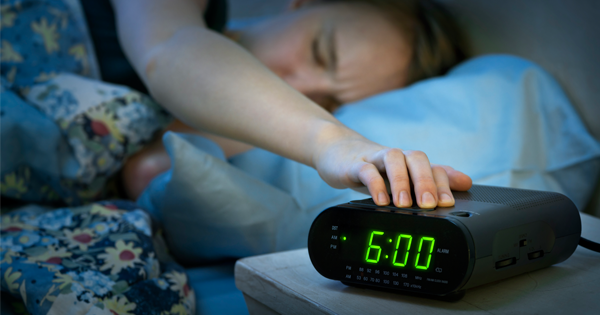Advertisement
We all use that dreaded snooze button sometimes. If you’re a serious snoozer, you know already when you set your alarm for a certain time that you’re not even going to wake up for 15-30 minutes after it.
You think you’re getting more sleep, or at least compromising. But actually, you could be doing yourself more harm than good.
When your alarm goes off the first time, it’s like you’re waking up halfway. That means when you snooze, you haven’t woken up completely, and you can just go into a deeper, deeper sleep until you actually have to wake up.
It’s much tougher to wake up from that much deeper sleep than it is to just wake up when you originally had your alarm set.
One recent study says that going back to sleep for shorter amounts of time actually makes it tougher to get going in the morning, and can even mess with your memory.
It makes sense to think that getting more sleep would make you feel more awake, but this is the one place where that’s not true.
Advertisement
Instead of setting an alarm for a point in time where you know you’ll sleep past it, try instead to be honest about when you’ll actually wake up. Not only that, but don’t keep your alarm clock where you can reach for it. Even making yourself get up from bed to turn it off will help you wake up.
Even better, try actually waking up when you originally set your alarm. Your body will get in a cycle before you know it, and you won’t need the snooze button anymore.




